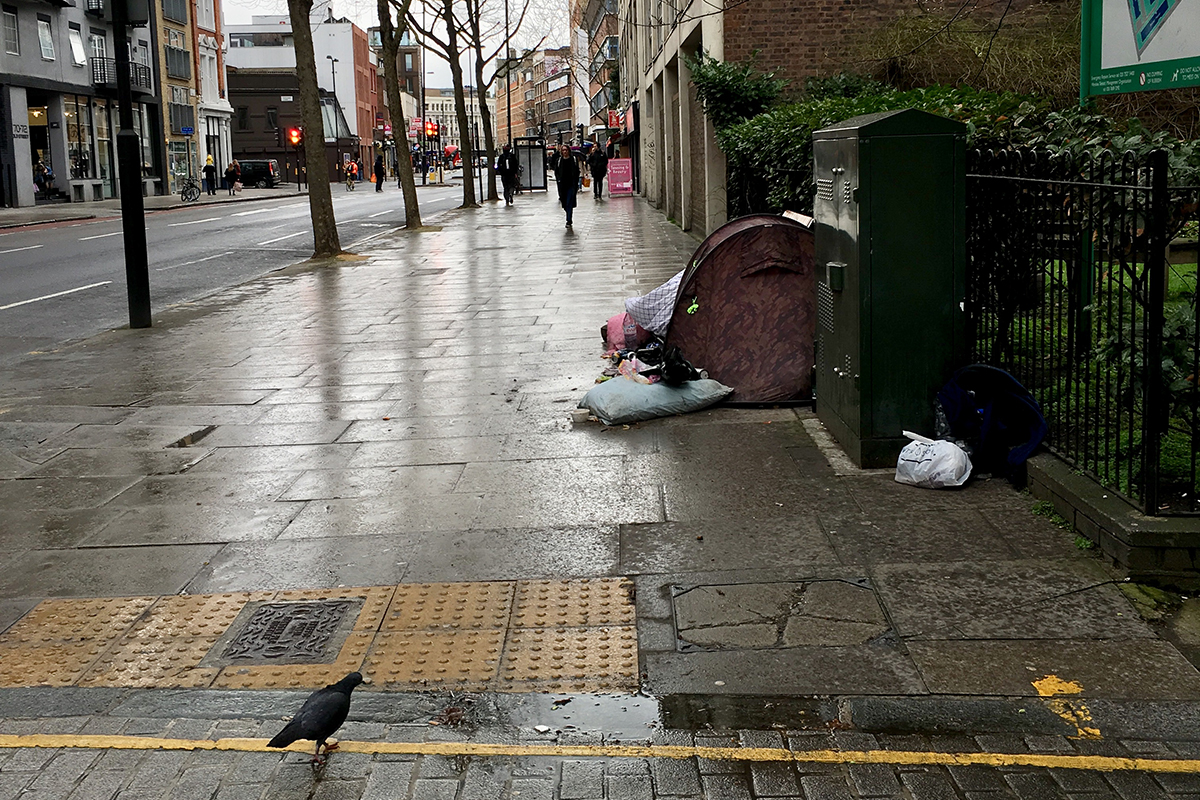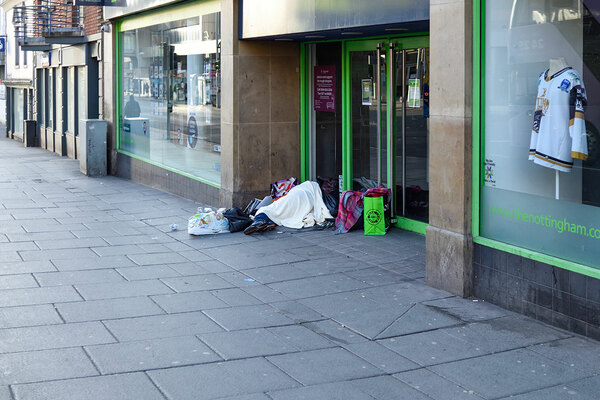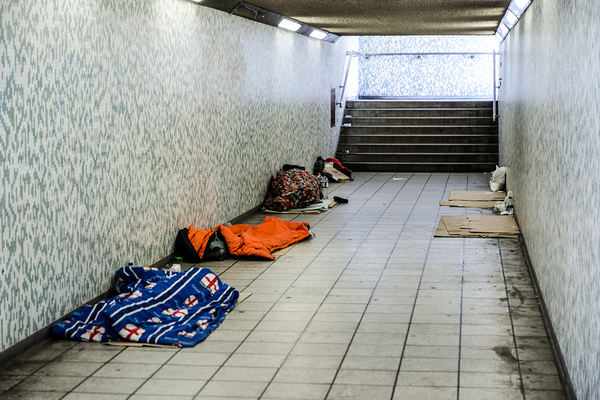You are viewing 1 of your 1 free articles

Sam Lister is policy and practice officer at the Chartered Institute of Housing
Rough sleepers will no longer be helped, instead they’ll be deported
From 1 December, homeless people who aren’t British nationals face deportation if they sleep rough – possibly even for one night following an illegal eviction. Sam Lister says this suggests the government intends to beef up the hostile environment, rather than learn the lessons of the Windrush scandal
In the run up to Christmas, rough sleepers who aren’t British nationals face deportation rather than help to get secure accommodation, according the latest twist in the immigration rules.
In a surprising extension of the hostile environment, home secretary Priti Patel has slipped in a new rule, which will come into effect on 1 December, that would see ‘permission to stay’ withheld or cancelled for anyone who has been rough sleeping.
“The wording suggests that even after they have stopped sleeping rough, if there is any record of them having done so, or they admit it to a Home Office official, they could be removed from the country”
This is a most disappointing reversal of the promise the government made earlier this year in May during the pandemic, promising to “provide thousands of long-term, safe homes for vulnerable rough sleepers taken off the streets”.
There was no sub-clause which said “but only if they are British”. This is vitally important as, in London at least, more than half of rough sleepers are foreign nationals (detailed figures aren’t available for the rest of the UK).
What will this mean in practice? Permission to stay means that someone has limited time to remain, which applies to huge numbers of foreign nationals in the UK as workers or spouses. If they lose their income or their home and end up on the streets, even for a short period, they risk losing their right to stay and even being deported.
What’s worse, the wording suggests that even after they have stopped sleeping rough, if there is any record of them having done so, or they admit it to a Home Office official, they could be removed from the country. It also suggests that just one night spent on the streets – for example, following loss of rented accommodation, perhaps after an illegal eviction – would be enough to trigger the rule.
Much will depend on detailed guidance and the practices adopted by officials, but the rule’s intention seems clear.
“Even if only a few people are taken off the streets and deported, it is going to be much harder to help those sleeping rough because they are going to be even more suspicious of anyone in authority”
Several points need to be made. The Nearly Legal blog points out that a rough sleeper seeking help from a local authority’s homelessness unit could inadvertently sign their own fate. One would hope this wouldn’t happen, but the writer speculates that the council officer concerned might call the Home Office and get the applicant’s permission to stay revoked, thus ending his or her right to homelessness assistance.
More broadly, the rule change massively affects agencies’ work to reduce homelessness.
Once the rule comes into force, even if only a few people are taken off the streets and deported, it is going to be much harder to help those sleeping rough because they are going to be even more suspicious of anyone in authority.
The problems that arose when some agencies were found to be working with Home Office enforcement teams could quickly return.
Another point is that many of those sleeping rough could regularise their immigration status if they only had stable accommodation and some legal advice. There is a shortage of such help. Instead of ramping up the threats, the Home Office could invest in better services for people with insecure status so that they can access benefits and permanent accommodation.
Finally, it is only a short while since Ms Patel pledged a “cultural shift” in approaches to immigration following the Windrush scandal. This was to include a review of how the hostile (or ‘compliant’) environment operates. Not only would policies be reviewed individually, but there would be “ongoing external engagement” and “openness to change”.
The department’s permanent secretary said they would now be focused on people, not cases. One of the key hostile environment policies that campaigners have focused on is the ‘no recourse to public funds’ rule, which denies housing and benefits to huge numbers of migrants.
The home secretary’s promises were greeted with much scepticism. Civil Service World said the promises were laughable. A journalist who had spoken to a Whitehall source claimed that the real intention is to “radically beef up the hostile environment” after the Brexit transition.
The “isn’t this weird and wacky” tone around the much of the discussion belies a much more serious point. A Whitehall source familiar with these asylum plans told me they were part of a push by Downing St to “radically beef-up the hostile environment” after the Brexit transition.
— Paul Lewis (@PaulLewis) October 1, 2020
The new rules published last Thursday, due to take effect as soon as the transition period after leaving the EU comes to an end, seem to prove him right.
Sam Lister, policy and practice officer at the Chartered Institute of Housing, contributes to the housing rights website, which gives detailed guidance on housing rights according to immigration status.










